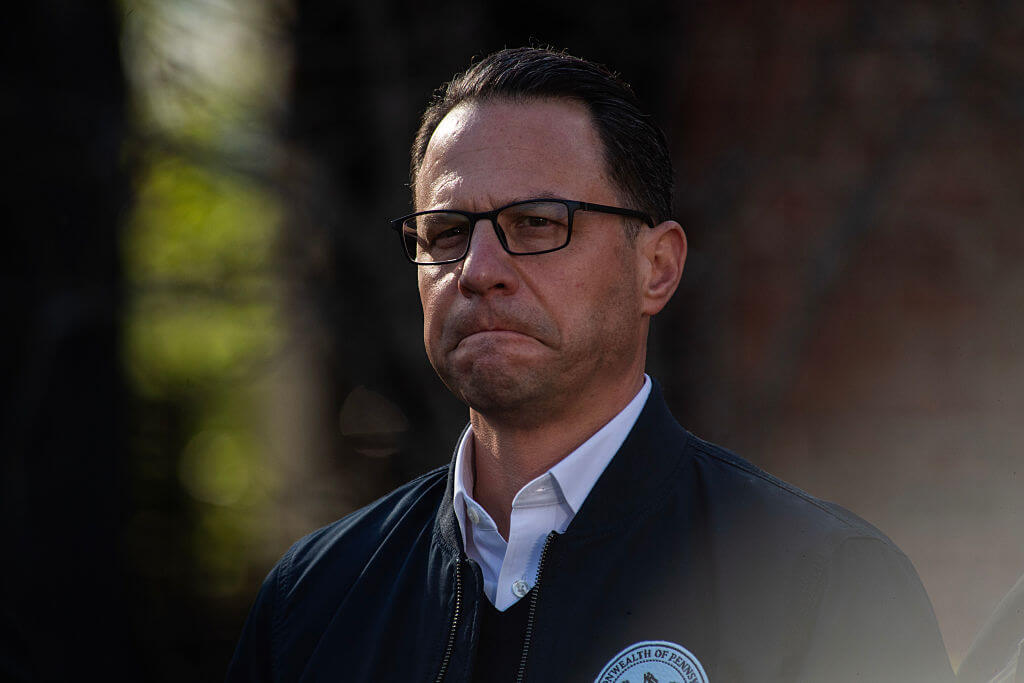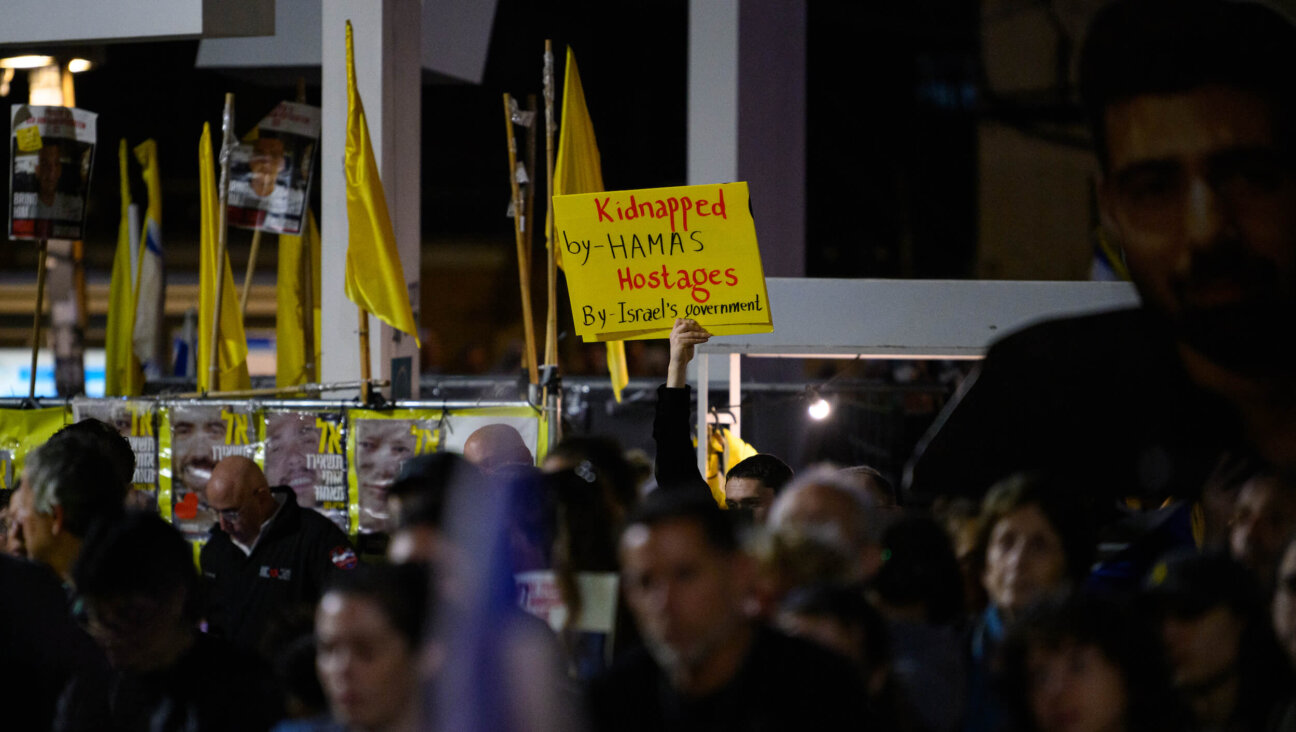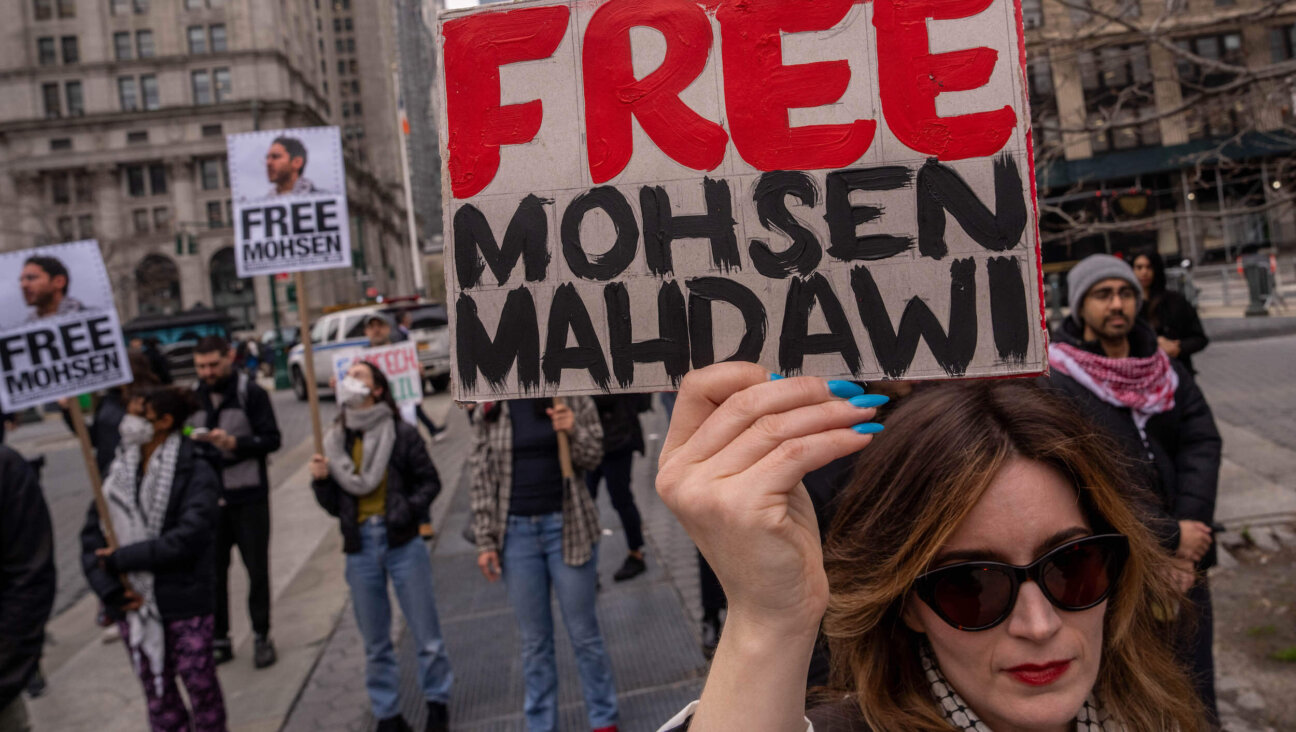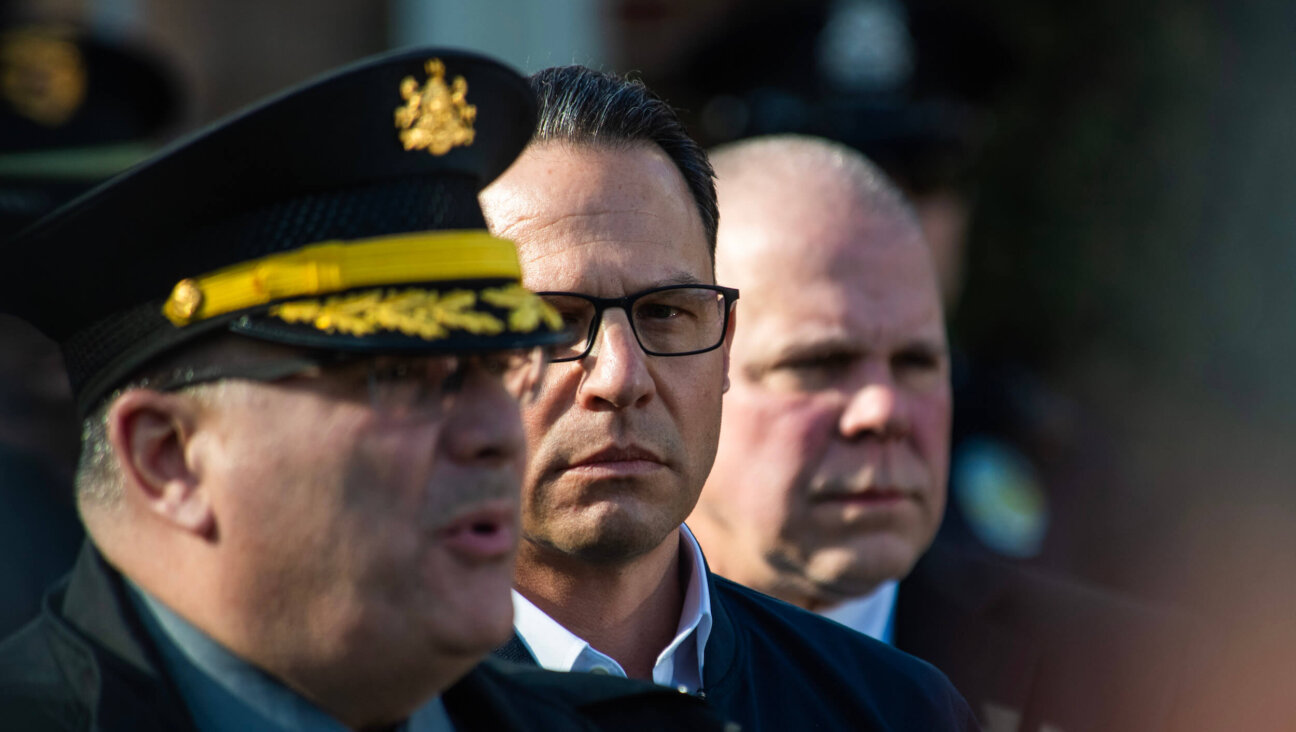How To Rehabilitate Israel’s Lost Love for Labor
Thoughtful readers are having trouble explaining the strangely quiescent mood in Israel these days. Given the precarious state of the peace process, mounting poverty, religious tension and terrorist missiles lining the borders, you might expect livelier debates. Where’s the noise?
Here’s a clue: The Labor Party, once led by David Ben-Gurion and Yitzhak Rabin, is currently chaired by Ehud Barak, who serves Benjamin Netanyahu as defense minister in the Likud-led government. It’s his job to maintain order among Palestinians in the territories while Netanyahu, Foreign Minister Avigdor Lieberman, Rabbi Ovadia Yosef and company decide their fate.
An acclaimed warrior, Barak never got used to politics. He’s disdainful of party business and remote from colleagues. In-house critics say he stays engaged only enough to neutralize party institutions so he can’t be unseated while he happily runs the army.
He was once prime minister himself, elected in 1999 but forced from office 19 months later, the shortest tenure of any Israeli prime minister. Before he took office, Labor was the largest party in the 120-member Knesset with 34 seats. When he returned from retirement to lead the party into the 2009 elections, he won just 13 seats. If elections were held today, polls show, his party would drop to five seats.
Unsurprisingly, Labor is now a nest of rival factions angling to unseat Barak. A November 12 poll in Yediot Aharonot tested voter opinions of six leading Labor contenders; Barak was dead last. Number one was Gabi Ashkenazi, currently army chief of staff, who hasn’t even said he’d be interested after he steps down next year, though rumors are rampant. In the middle were two cabinet ministers, Yitzhak Herzog and Avishay Braverman, plus Tel Aviv Mayor Ron Huldai and Histadrut chief Ofer Eini. Ashkenazi was the only one of the six who could win a general election if it were held now.
The most active challengers so far are Herzog, the minister of welfare, and Braverman, minister of minority affairs. But they’re split on how to proceed. Herzog, a son and grandson of revered Israeli leaders, is pushing for Labor to quit the coalition and hold early primaries this winter. Braverman, former president of Ben-Gurion University in the Negev, makes no secret of his own ambitions, but he says this is no time for a leadership contest. “What’s important is not choosing the leader, but deciding the direction,” he said during a recent visit to New York.
“I told Buzhi just the other week, forget the primaries,” Braverman said, using Herzog’s nickname. “The problem right now is the peace process. Netanyahu has to decide if he’s going to take the leap or not. If he does, we need to stay and support him. If he doesn’t, we’ll know it’s time to move. My hope and prayer is that Netanyahu will step forward and that President Obama will move with all possible speed and determination toward a peace agreement. Israel needs it. The Palestinians need it. The Middle East needs it. America needs it.”
It’s strange to hear a Labor Party leader cheering on a hawkish Likud prime minister who’s snatching Labor’s traditional calling card of territorial compromise and Palestinian statehood. On the other hand, Labor is in no position to lead the way.
“The Labor Party is the worst brand name in Israel today,” Braverman said.
Braverman’s long-term goal is to retire the existing Labor Party, which built the state but has worn out its welcome, and create a new structure with the same ideals but none of the entrenched factional backbiting. As he speaks, he notices his listener stifling a chuckle. He smiles back. “They laughed at me 20 years ago when I said we would build a university in the Negev that’s as good as Tel Aviv University, or Stanford. But we did it. Now I’m saying we’re going to build a new movement based on the principles of the Labor Party.”
Tel Aviv-born Braverman was a senior economist at the World Bank in Washington in 1990 when he was recruited to head Ben-Gurion University by the school’s governing board chair, New York real estate mogul Robert Arnow. “When I got to the university, there were four buildings and 5,700 students,” Braverman said. “Now it’s an empire with a billion-dollar campus and 20,000 students. It’s the top choice of students in Israel.”
Braverman also made Ben-Gurion University a leading champion of the Bedouins, Israel’s poorest population and a longtime passion of Arnow’s. “When I came there were five Bedouin women students and 30 Bedouin men. Today there are 300 Bedouin women students. There are five Bedouin professors.”
Integrating Israeli Arabs into society and the workforce is a top agenda item of Braverman’s putative new movement. That’s why he took the minority affairs post in Netanyahu’s cabinet, after opposing Labor’s entry into the coalition. He says it’s urgent that Israel try to close the gap between the high-tech and creative bubble around Tel Aviv and the growing “Third World conditions” elsewhere in the country. He envisions streamlining Israel’s notoriously dysfunctional government and bureaucracy to encourage investment. He’d redirect major resources toward upgrading basic infrastructure, reforming the crumbling school system and stopping the academic brain drain. “Israel is the poorest and most unequal country in the developed world,” he said. “Poorer than either Mexico or Turkey.”
Braverman gives Netanyahu credit for strongly backing his Arab development projects and pushing bureaucratic reform. But none of it will matter if the peace process stalls. That would mean the end of the Jewish state. It’s not a good sign that the prime minister keeps giving ground to the right-wing maneuvering of Avigdor Lieberman, who Braverman says is aiming to become the leader of the right, push Netanyahu aside and create an isolated garrison state. Netanyahu has to choose, he said with characteristic modesty, “between the Israel of Lieberman and the Israel of Braverman.”
Contact J.J. Goldberg at [email protected] and follow his blog at www.forward.com
The Forward is free to read, but it isn’t free to produce

I hope you appreciated this article. Before you go, I’d like to ask you to please support the Forward.
Now more than ever, American Jews need independent news they can trust, with reporting driven by truth, not ideology. We serve you, not any ideological agenda.
At a time when other newsrooms are closing or cutting back, the Forward has removed its paywall and invested additional resources to report on the ground from Israel and around the U.S. on the impact of the war, rising antisemitism and polarized discourse.
This is a great time to support independent Jewish journalism you rely on. Make a Passover gift today!
— Rachel Fishman Feddersen, Publisher and CEO
Most Popular
- 1

News Student protesters being deported are not ‘martyrs and heroes,’ says former antisemitism envoy
- 2

Opinion My Jewish moms group ousted me because I work for J Street. Is this what communal life has come to?
- 3

News Who is Alan Garber, the Jewish Harvard president who stood up to Trump over antisemitism?
- 4

Fast Forward Suspected arsonist intended to beat Gov. Josh Shapiro with a sledgehammer, investigators say
In Case You Missed It
-

Fast Forward Itamar Ben-Gvir is coming to America, with stops at Yale and in New York City already set
-

Fast Forward Texas Jews split as lawmakers sign off on $1B private school voucher program
-

Books What is ‘Zionism without Zion?’ New history asks, but can’t answer
-

Fast Forward Shapiro recites Priestly Blessing given to him by fire chaplain after Passover arson
-
Shop the Forward Store
100% of profits support our journalism
Republish This Story
Please read before republishing
We’re happy to make this story available to republish for free, unless it originated with JTA, Haaretz or another publication (as indicated on the article) and as long as you follow our guidelines.
You must comply with the following:
- Credit the Forward
- Retain our pixel
- Preserve our canonical link in Google search
- Add a noindex tag in Google search
See our full guidelines for more information, and this guide for detail about canonical URLs.
To republish, copy the HTML by clicking on the yellow button to the right; it includes our tracking pixel, all paragraph styles and hyperlinks, the author byline and credit to the Forward. It does not include images; to avoid copyright violations, you must add them manually, following our guidelines. Please email us at [email protected], subject line “republish,” with any questions or to let us know what stories you’re picking up.














